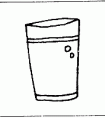用所给单词的正确形式填空。1. Iwouldlikesome(sugar).2. It's a(snow)day.3.It'shottoday.Let'sgo(swim).4.Whatcolouris(Mary)hat?5.They(notgo)toschooltomo-六年级英语
考点名称:一般将来时
一般将来时:
表示将来某个时间要发生的动作或存在的状态,也表示将来经常或反复发生的动作。
由“助动词will+动词原形”构成。“be going to+动词原形”结构是将来时的另一种形式,表示将要发生的事或者事先经过考虑打算去做某事。
例:We will go to Shanghai next year. 明年我们要去上海。
We are going to have a football match tomorrow. 我们明天要举行一场足球比赛。
Tom is going to have a bath. 汤姆要去洗澡了。一般将来时常见结构:
1、will / shall + 动词原形(否定句在will/shall后加not)
will 常简略为 'll,并与主语连写在一起,如: I'll,she'll,he'll,it'll,we'll,you'll,they'll。
一般疑问句如用will you…?其简略答语须是Yes,I will或 No,I won't;如用 Shall I…?(较少见)其简略答语须是 Yes,I shall.或 No, I shall not.
这种方法一般单纯地表示将来某个时间将要发生的动作或存在的状态。will用于各种人称;shall只用于第一人称。 例如 :
I will / shall go to visit him next week. 下周我将去拜访他。
What time shall we go there tomorrow? 明天我们几点去那儿?
2、be going to 动词原形
be going to 相当于一个助动词(其中be有人称和数的变化),与它后面的动词原形一起构成谓语。用来表示近期将要发生的动作以及计划、安排和打算要做的事。例如:
There is going to be a football match this afternoon.今天下午将有一场足球赛。
I‘m going to go to the park. 我将要去公园。
常用结构:
1、用于"I expect, I'm sure, I think, I wonder宾语从句"中。
Don't worry about the exam. I'm sure you'll pass.
不要担心这次考试,我确信你会通过的。
2、用于祈使句和陈述句中。
Work hard and you will succeed.
如果你努力,就会成功的。
3、与表示时间或条件的状语从句连用。
I'll let you know as soon as he arrives.
他一到我就通知你。- be going to与will的区别:
be going to与will两者都可表示将要发生的事、将要去做某事,但它们有如下几点区别:
1. be going to 表示近期、将要发生的事情,will 表示的将来的时间则较远一些,如:
He is going to write a letter tonight.
He will write a book one day.
2. be going to 表示根据主观判断将来肯定发生的事情,will表示客观上将来势必发生的事情。
He is seriously ill. He is going to die.
He will be twenty years old.
3. be going to 含有“计划,准备”的意思,而 will 则没有这个意思,如:
She is going to lend us her book.
He will be here in half an hour.
4.在有条件从句的主句中,一般不用 be going to, 而多用will, 如:
If any beasts comes at you, I'll stay with you and help you
注意
be going to和will在含义和用法上稍有不同。be going to往往表示事先经过考虑的打算;will多表示意愿,决心。两者有时不能互换。如:
She is studying hard and is going to try for the exams.她正努力学习并尝试参加考试。(is going to不能用will替换) - 一般将来时一般用法:
(1)一般将来时表示将要发生的动作或情况。
例如:I will(shall) arrive tomorrow.我明天到。(主语是第一人称时最好用shall)
Will you be free tonight? 你今晚有空吗?
We won’t (shan’t) be busy this evening. 我们今晚不忙。
(2)在一般将来时的句子中,有时有表示将来时间的状语,有时没有时间状语,这时要从意思上判断是否指未来的动作或情况。例如:
Will she come? 她(会)来吗?
(3)在以第一人称I或we作主语的问句中,一般使用助动词shall,这时或是征求对方的意见,或是询问一个情况(b):
a. Where shall we meet? 我们在哪儿碰头?
b. Shall we have any classes tomorrow?明天我们有课吗?
在这类问句中,近几年来也有不少人用will,特别是在美国。例如:
How will I get there? 我怎么去?
(4)be going to+ 动词原形
a.表示计划、打算、准备做的事。例如:
We are going to put up a building here.我们打算在这里盖一座楼。
How are you going to spend your holidays?假期你准备怎样过?
b.表示即将发生或肯定要发生的事。例如:
I think it is going to snow. 我看要下雪了。 - 常用时间状语:
1)tomorrow,the day after tomorrow,tomorrow morning/afternoon/evening
2)next year/week/month/hour/day/century
3)in+一段时间
4)in the future
5)this afternoon/Sunday/evening
6)from now on
7)one day,someday (未来的)某天
8)soon
考点名称:动名词
- 动名词:
如果一个动词加上了-ing变成了名词,那么这个词称动名词。 动名词是一种兼有动词和名词特征
的非限定动词。它可以支配宾语,也能被副词修饰。动名词有时态和语态的变化。
例:Reading is an art. 读书是一种艺术。
Swimming is a good sport in summer. 游泳是夏天一项好的运动。
There is no saying when he'll come. 很难说他何时回来。
No smoking. (=No smoking is allowed here) . 禁止吸烟!
No parking. 禁止停车!
Let’s go shopping. 让我们去购物。 动名词常见题型:
1)动名词做主语时,谓语动词为单数
2)在动名词和不定式中,作为介词的宾语是动名词
3)动名词的否定直接在其前加否定词,通过代词的宾格或所有格形式给出逻辑主语
例:
I would appreciate_______ back this afternoon.
A.you to call
B.you call
C.you calling
D.you’re calling
(Key:C;换成your calling也对)
4)有些词后只能接动名词
acknowledge;admit; advise;advocate;allow;appreciate; avoid; celebrate; consider; contemplate; defer; delay; deny; detest; discontinue; dislike; dispute; enjoy; it entails; escape; excuse; explain; fancy; feel like; finish; forgive; can’t help; hinder; imagine; it involves; keep; it means; mention; mind; miss; it necessitates; pardon; postpone; practice; prevent; recall; report; resent; resist; risk; suggest; understand...
5)另外还有一些接-ing形式的常用说法
it’s no good; it’s no/little/hardly any/ use; it’s not/hardly/scarcely use; it’s worthwhile; spend money/time; there’s no; there’s no point in; there’s nothing worse than; what’s the use/point...
6)有些词后面加不定式和动名词均可
remember,forget,try,stop,go on,continue,stop,regret,cease,mean后面均可用不定式和-ing形式,但意义截然不容。
例:
remember to do/doing:
①I remembered to post the letters.(指未来/过去未来将要做的动作)
②I remembered posting/having posted the letters.(我记得做过这个动作)
forget与remember的用法类似。
regret的用法:
①I regret to inform you that…(我很遗憾地通知你……)
②I regretted having left the firm after twenty years.(为了“二十年前的离开”而遗憾。)
try to(努力)与try +–ing(试验):
①You really must try to overcome your shyness.
②Try practicing five hours a day.动名词用法口诀:
动名词常泛指,句法作用宾/表/定与主,时态/语态之形式,一般/完成/被动式。
Being done 系被动,不含任何进行意。
用作主语请留意,常用it作形式主语,不指未来发生事,表达的信息系已知。
用作表语请记清,作用相当一名词,检验方法很简单,主与表换位能成立。
用作定语也易辩,表示名词之用途。
用作宾语稍复杂,关键留意谓语动词(跟动名词作宾语的常用动词附后),时态同谓动作比较,先于谓动用完成式,其逻辑主语不固定,在句中/句外均有之。
否定式其前加not,复合式其前加物主词,非句首宾格词也可用,尤其口语中更如此。
说明:
1、主-----主语
2、宾-----宾语
3、表------表语
4、定------定语
5、谓动---谓语动词
- 最新内容
- 相关内容
- 网友推荐
- 图文推荐
| [家长教育] 孩子为什么会和父母感情疏离? (2019-07-14) |
| [教师分享] 给远方姐姐的一封信 (2018-11-07) |
| [教师分享] 伸缩门 (2018-11-07) |
| [教师分享] 回家乡 (2018-11-07) |
| [教师分享] 是风味也是人间 (2018-11-07) |
| [教师分享] 一句格言的启示 (2018-11-07) |
| [教师分享] 无规矩不成方圆 (2018-11-07) |
| [教师分享] 第十届全国教育名家论坛有感(二) (2018-11-07) |
| [教师分享] 贪玩的小狗 (2018-11-07) |
| [教师分享] 未命名文章 (2018-11-07) |

![Wouldyoulikesome __________?[ ]A.fishsB.meatC.orangeD.pops-五年级英语](http://www.00-edu.com/d/file/ks/4/1/10/2019-08-10/small4c75c0a683b24324cb211e1f689283f61565374205.png)

![— Can I have _____________ envelope and some _____________?— Sure, here you are.[ ]A. an; writing paperB. a; writing papersC. a; writing paper-六年级英语](http://www.00-edu.com/d/file/ks/4/1/10/2019-08-10/small607be2a4279919a9e31d4e82a28a68831565374156.png)

![I'd like _____________. What about you? [ ]A. a bottle of orangesB. a bottles of orangeC. a bottle of orangeD. bottles of oranges-五年级英语](http://www.00-edu.com/d/file/ks/4/1/10/2019-08-10/smallb921618a5ccef017ecdea1bf565822071565374253.png)
